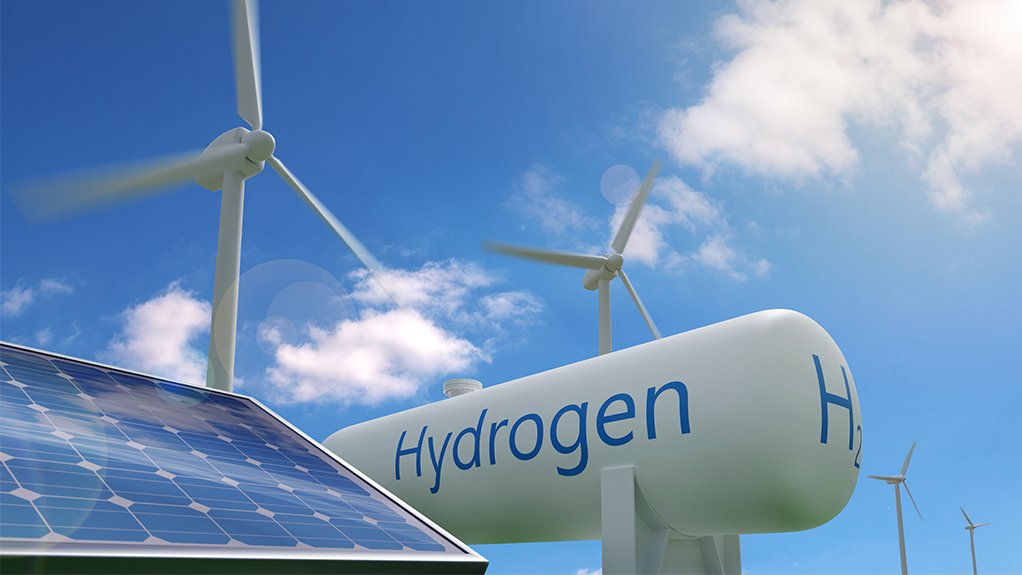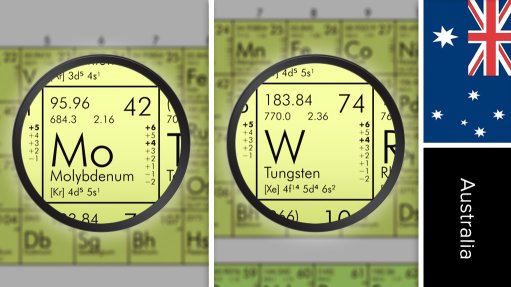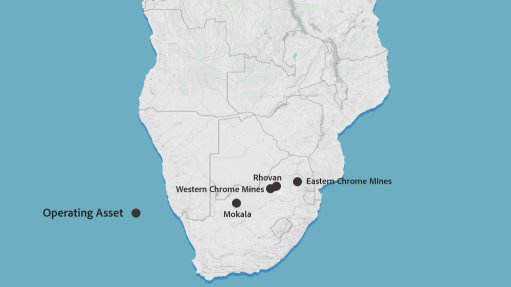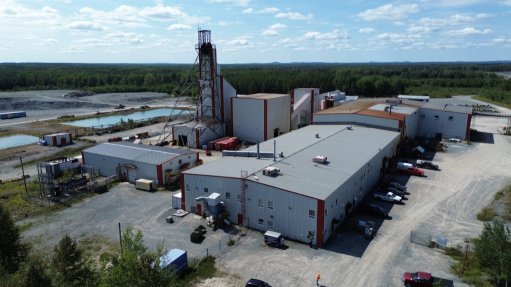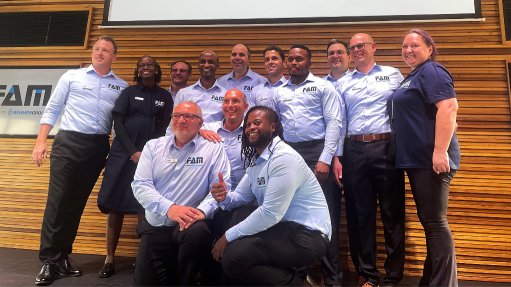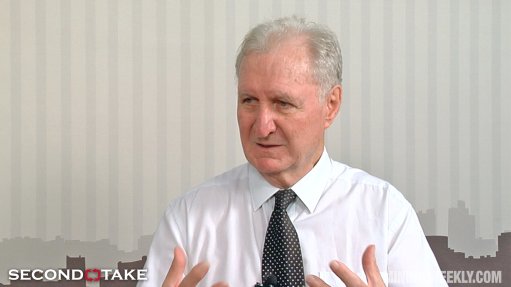Maximising hydrogen potential vital, says DSI director-general
Department of Science and Innovation (DSI) director-general Dr Phil Mjwara has highlighted the importance of maximising the potential of hydrogen technologies in the South African economy, particularly in using these technologies to boost the economy, create jobs and support the ongoing just energy transition.
Speaking at the DEVAC Hydrogen-H conference, in Johannesburg, on September 6, he also stressed the importance of the event in creating awareness of the potential benefits that could be unlocked through the South African hydrogen economy.
Mjwara discussed the work the DSI, as well as the Department of Higher Education and Training, was conducting to support hydrogen-related innovation and skills needed for growing the hydrogen economy in South Africa.
“The establishment of the strong hydrogen economy places South Africa in a good position to build on and revolutionise its own economy and supply green hydrogen and green ammonia to the world at competitive prices. The development of the local hydrogen economy and the transition in the energy sector also provides an opportunity for training, skills development and creating employment opportunities for hydrogen-related technologies and innovation.
"Given that the National Development Plan has identified science, technology and innovation as primary drivers of economic growth, job creation and socioeconomic reform, this remains critical in unpacking elements that can contribute to addressing the challenges of unemployment, poverty and inequality. Through these incentives, the DSI strives to enforce a national system of innovation, in which creativity, learning and entrepreneurship can flourish and address socioeconomic challenges,” he said.
He added that, for this reason, the 2019 White Paper on Science, Technology and Innovation emphasises the key themes of inclusivity, transformation, and partnerships within the national system of innovation.
Through the DSI, government has invested in the development of relevant scientific knowledge domains that are seen as critical for advancing South Africa’s development and global competitiveness.
Mjwara particularly highlighted the importance of the implementation of the hydrogen technologies developer HySA’s research, development and innovation flagship programme, as well as the development of the DSI's Cabinet-approved national Hydrogen Society Roadmap for South Africa.
HYDROGEN ROADMAP
He explained that the Hydrogen Society Roadmap had identified various local sectors – including primary industrial sectors – that could benefit from hydrogen integrated technologies.
The “levers” of this roadmap will also enable competitive hydrogen production in the country to address the domestic and projected global demand.
He added that recent reviews on the global hydrogen economic landscape showed trends related to the use of hydrogen in different sectors.
These trends indicated that the hydrogen sector was destined to grow exponentially in the next 10 to 20 years, he added.
He did, however, stress that there were also indications that the sector would be constrained in the manufacturing of large electrolysers, which were required to supply low-emission hydrogen that supported the global “net-zero emissions scenario”.
“This provides an excellent opportunity for South Africa and the rest of Africa to position themselves to address this constraint through the local manufacturing of electrolyser components. Through its energy research, development and innovation flagship programmes, the DSI is supporting the implementation of the Hydrogen Society Roadmap through the development of local intellectual property.
"This is to enable the widespread commercialisation of battery, fuel cell, renewable and net-zero carbon technologies. These technologies need to be competitive with the current technologies in cost and performance, while fostering strategic partnerships with the public and private sectors to reduce the market barriers to commercialisation.”
He added that the commercialisation and sustainable manufacturing of hydrogen-related technologies could be enhanced in a few ways.
The first is the integration of locally developed intellectual property in the form of value-added components in all catalytic projects to establish a “robust baseline of local capabilities and supply chains”.
The second is the use of smart and advanced technology transfer, where synergies exist with both original-equipment manufacturers and other industry role-players.
“The Department of Science and Innovation, through its flagship programmes, has developed various capabilities. The first of these is a healthy portfolio of intellectual property and technologies along the hydrogen value chain.
These include eight platinum-group-metals-based catalysts that are now being produced at a commercial scale at the Council for Mineral Technology (Mintek), as well as fuel cell and electrolyser membrane electrode assemblies – at technology-readiness levels greater than five – at the University of Cape Town.
He also adds that catalyst-coated membranes for electrolysers, as well as electrolyser stacks at 1 kW and 5 kW, have been developed at North-West University.
Further, the DSI has contributed to a pipeline of “knowledge records”, including more than 200 master's and doctoral students with expertise in the hydrogen fuel cell value chain.
Lastly, a growing number of unemployed vocational education and training graduates are being trained in hydrogen fuel cell technologies, as well as energy storage technologies, through an internship programme in partnership with the private sector.
“The department would like to work with stakeholders on a range of issues related to this. The first is establishing an extensive metric transportation system for hydrogen to meet high levels of hydrogen demand. We also seek to enhance national institutional capabilities, implement enabling policy frameworks, and improve technological readiness to stimulate demand and facilitate local manufacturing of hydrogen technologies.
"We need to position South Africa to play its role in contributing to demand and use its manufacturing to meet these demand requirements and create an enabling ecosystem that supports hydrogen and innovations. We seek to continue building stronger relationships between government, the private sector and civil society, to create an enabling ecosystem that supports hydrogen and innovations”.
Article Enquiry
Email Article
Save Article
Feedback
To advertise email advertising@creamermedia.co.za or click here
Press Office
Announcements
What's On
Subscribe to improve your user experience...
Option 1 (equivalent of R125 a month):
Receive a weekly copy of Creamer Media's Engineering News & Mining Weekly magazine
(print copy for those in South Africa and e-magazine for those outside of South Africa)
Receive daily email newsletters
Access to full search results
Access archive of magazine back copies
Access to Projects in Progress
Access to ONE Research Report of your choice in PDF format
Option 2 (equivalent of R375 a month):
All benefits from Option 1
PLUS
Access to Creamer Media's Research Channel Africa for ALL Research Reports, in PDF format, on various industrial and mining sectors
including Electricity; Water; Energy Transition; Hydrogen; Roads, Rail and Ports; Coal; Gold; Platinum; Battery Metals; etc.
Already a subscriber?
Forgotten your password?
Receive weekly copy of Creamer Media's Engineering News & Mining Weekly magazine (print copy for those in South Africa and e-magazine for those outside of South Africa)
➕
Recieve daily email newsletters
➕
Access to full search results
➕
Access archive of magazine back copies
➕
Access to Projects in Progress
➕
Access to ONE Research Report of your choice in PDF format
RESEARCH CHANNEL AFRICA
R4500 (equivalent of R375 a month)
SUBSCRIBEAll benefits from Option 1
➕
Access to Creamer Media's Research Channel Africa for ALL Research Reports on various industrial and mining sectors, in PDF format, including on:
Electricity
➕
Water
➕
Energy Transition
➕
Hydrogen
➕
Roads, Rail and Ports
➕
Coal
➕
Gold
➕
Platinum
➕
Battery Metals
➕
etc.
Receive all benefits from Option 1 or Option 2 delivered to numerous people at your company
➕
Multiple User names and Passwords for simultaneous log-ins
➕
Intranet integration access to all in your organisation



